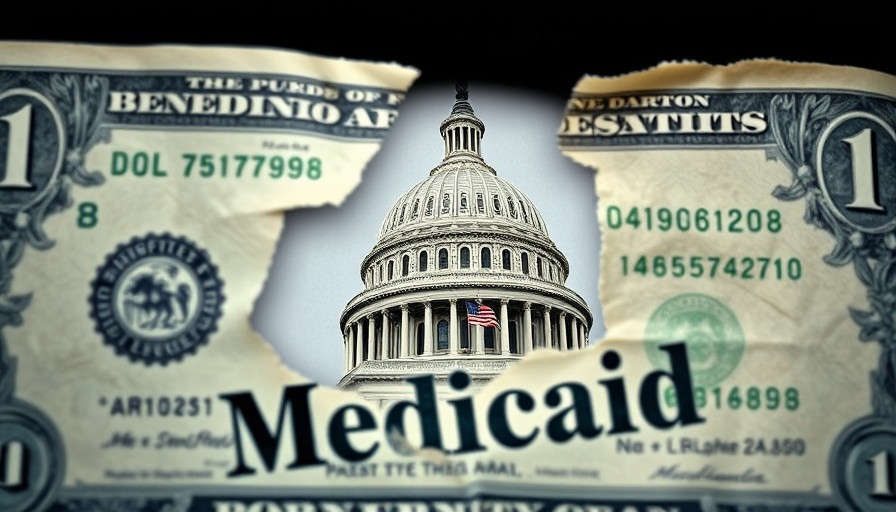
The Problem of Duplicative Medicaid Enrollments
In a significant step towards curbing government waste, the Centers for Medicare and Medicaid Services (CMS) announced plans to remove duplicative enrollments affecting 2.8 million Americans. This move comes amidst growing scrutiny over the spending practices of taxpayer-funded healthcare programs. An analysis by CMS revealed that approximately 1.2 million individuals were enrolled in Medicaid or the Children's Health Insurance Program (CHIP) in multiple states, while about 1.6 million were simultaneously enrolled in these programs and a subsidized Affordable Care Act (ACA) plan, leading to a staggering loss of about $14 billion per year in unnecessary duplicate payments.
Understanding the Solutions
Starting in August, CMS will collaborate with states to identify those carrying dual enrollments and ensure their eligibility is verified. This process aims to prevent wasteful spending, ensure that everyone retains the proper coverage, and encourage accountability on state levels. House Budget Committee Chairman Jodey Arrington has emphasized that health care safety nets should primarily serve vulnerable Americans, not be exploited for fraud. CMS Administrator Mehmet Oz echoed this sentiment, promising to identify and rectify these enrollment issues quickly.
The Broader Impact on Taxpayers
For taxpayers, the implications of this CMS initiative are profound. Each year that duplicate enrollments persist translates into increased financial burdens. Addressing these duplicative enrollees will help to restore fiscal responsibility within Medicaid, ensuring that funds go where they are genuinely needed. By acting swiftly, the program aims to reflect transparency and efficiency, qualities desperately needed in government spending.
Potential Challenges and Perspectives
While the removal of duplicative enrollments is a step in the right direction, challenges remain. Particularly during the COVID-19 pandemic, some regulations were relaxed to ensure continuous enrollment, which may have inadvertently contributed to the issue. Consequently, balancing strict eligibility checks while acknowledging the ongoing health crisis is crucial. Critics argue that the fast-paced changes could risk coverage stability for vulnerable populations and that more efforts might be necessary to combat the broader epidemic of waste and abuse in healthcare spending.
Looking Ahead: Future Considerations in Medicaid Policies
As the healthcare landscape evolves, staying informed about changes in Medicaid and related programs is essential. The One Big Beautiful Bill Act provides tools to potentially minimize waste in the long run. It is vital for individuals and families to explore their healthcare options and ensure they understand the coverage that is suitable for their needs. Those eligible for Medicare or Medicaid can benefit from comparing available plans to make informed choices.
Your Medicare Medicaid Plan Is Just a Call Away
In light of these changes, it's essential to find health insurance that best suits your needs. Comparing Medicare options can be overwhelming, but you deserve a plan that offers the right coverage for your unique situation. Take the step today—Your Perfect Medicare Medicaid Plan Awaits—Trusted Expert, Get The Benefits You Deserve NOW. Call (231) 571-6100!
 Add Row
Add Row  Add
Add 




Write A Comment